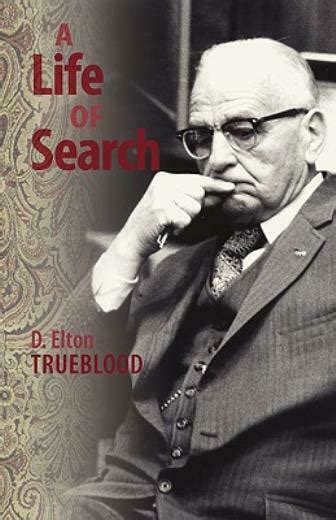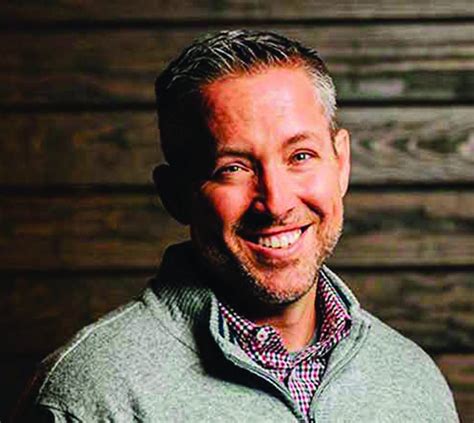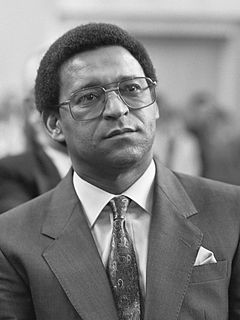A Quote by Larry Burkett
Most Christians are more than content to live out their lives surrounded by the trappings of our world, rather than to risk losing them in becoming a radical Christian. A radical Christian (by my definition) is one who will put God first in all decisions, even when putting God first is costly. In the business world, this means putting God first even when doing so costs money. That is true freedom - spiritual freedom - as opposed to business bondage.
Quote Topics
Becoming
Bondage
Business
Business World
Christian
Christians
Content
Costly
Costs
Decisions
Definition
Doing
Even
First
Freedom
God
God First
Live
Lives
Losing
Means
Money
More
Most
Opposed
Our
Our World
Out
Put
Put God First
Putting
Radical
Radical Christian
Rather
Risk
Spiritual
Spiritual Freedom
Surrounded
Than
Them
True
True Freedom
Will
World
Related Quotes
Christians have always tended to transform the Christian Revelation into a Christian religion. Christianity is said to be a religion like any other or, conversely, some Christians try to show that it is a better religion than the others. People attempt to take possession of God. Theology claims to explain everything, including the being of God. People tend to transform Christianity into a religion because the Christian faith obviously places people in an extremely uncomfortable position that of freedom guided only by love and all in the context of God's radical demand that we be holy.
[W]e must first experience the kingdom if we are even to know what kind of freedom and what kind of equality we should desire. Christian freedom lies in service, Christian equality is equality before God, and neither can be achieved through the coercive efforts of liberal idealists who would transform the world into their image.
This, then, is the foundation of sanctification in Reformed theology. It is rooted, not in humanity and their achievement of holiness or sanctification, but in what God has done in Christ, and for us in union with him. Rather than view Christians first and foremost in the microcosmic context of their own progress, the Reformed doctrine first of all sets them in the macrocosm of God's activity in redemptive history. It is seeing oneself in this context that enables the individual Christian to grow in true holiness.
If Christians around the world were to suddenly renounce their personal agendas, their life goals and their aspirations, and begin responding in radical obedience to everything God showed them. the world would be turned upside down. How do we know? Because that's what first century Christians did, and the world is still talking about it.
The heart that delights in God and longs only to see His glory advance will seldom be conscious of sacrifice. God in His wisdom asks that we first love Him and then live in keeping with that core value. He does not want His people to think of what they do as sacrificial, even though from the world's point of view it may be just that. Gratitude for grace of God will always be found near the center of the Biblical Christian's most powerful motivations.
Only a law-order which holds to the primacy of God's law can bring forth true freedom, freedom for justice, truth, and godly life. Freedom as an absolute is simply an assertion of man's "right" to be his own god; this means a radical denial of God's law-order. "Freedom" thus is another name for the claim by man to divinity and autonomy. It means that man becomes his own absolute.
Without love even the most radical devotion to God is of no value to Him. Let me make sure that sinks in… You can gain all the spiritual gifts in the world. You can take the most radical steps of obedience. You can share every meal with the homeless in your city. You can memorize the book of Leviticus. You can pray each morning for four hours like Martin Luther. But if what you do does not flow out of a heart of love - a heart that does those things because it genuinely desires to do them - it is ultimately worthless to God.
Do I as a Christian understand myself? Do I know my own real identity? My own real destiny? I am a child of God, God is my Father; heaven is my home; every day is one day nearer. My Saviour is my brother; every Christian is my brother too. Say it over and over again to yourself first thing in the morning, last thing at night, as you wait for the bus, any time when your mind is free, and ask God that you may be enabled to live as one who knows it is all utterly and completely true. For this is the Christians secret of the Christian life, of a God-honouring life.
It is Deism which depicts God as the passive onlooker rather than the active governor of His world, and which assures us that the guarantee of human freedom lies in the fact that men's actions are not under God's control. But the Bible teaches rather that the freedom of God, who works in and through His creatures, leading them to act according to their nature, is itself the foundation and guarantee of the freedom of their action.
Such true worship will stand the test of Christ's great principle, “By their fruits you shall know them”. It sanctifies the Christian's life, and makes them walk with God, lifting them above fear and love of the world. It enables a Christian to show God to other folks. Such worship comes from heaven, and has the mark of God upon it.
The fact the enemies of God must face is that modern civilization has conquered the world, but in doing so has lost its soul. And in losing its soul it will lose the very world it gained. Even our own so-called Liberal culture in these United States which has tried to avoid complete secularization by leaving little zones of individual freedom is in danger of forgetting that these zones were preserved only because religion was in their soul. And as religion fades so will freedom, for only where the spirit of God is, is there liberty.
The real issue relating to exclusiveness is whether or not the Christian actually has a relationship with God, a presence of God, which non-Christians do not have. Apart from Christian spiritual formation as described here, I believe there is little value in claiming exclusiveness for the Christian way.
Christianity stands or falls with its revolutionary protest against violence, arbitrariness and pride of power and with its plea for the weak. Christians are doing too little to make these points clear rather than too much. Christendom adjusts itself far too easily to the worship of power. Christians should give more offense, shock the world far more, than they are doing now. Christian should take a stronger stand in favor of the weak rather than considering first the possible right of the strong.


































